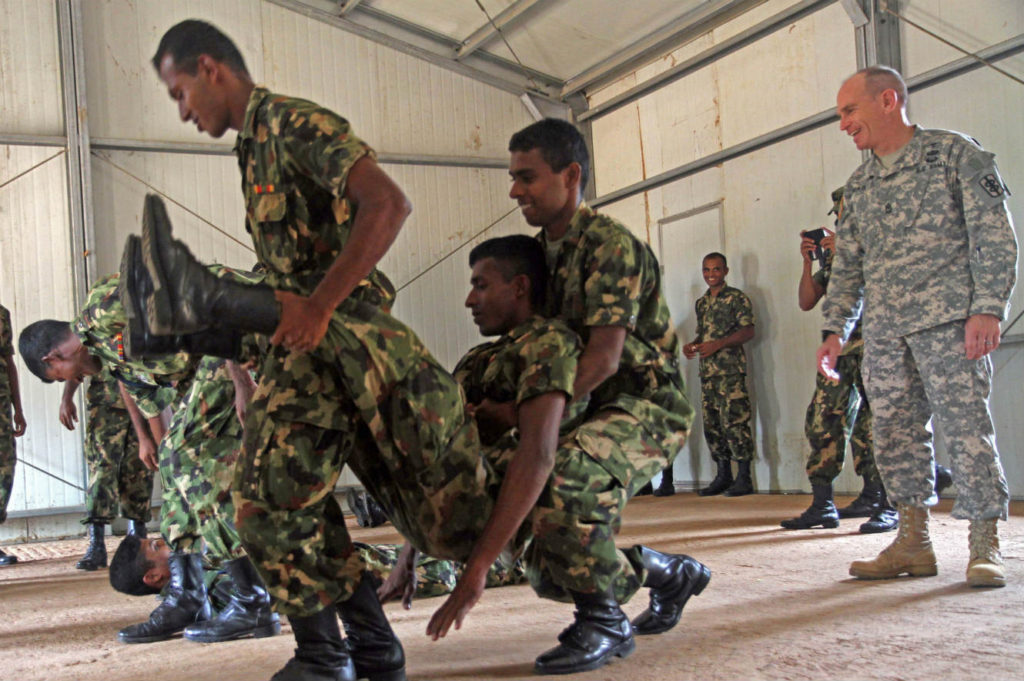Media Coverage, Ideological Effects, and Naxal Violence
Recently, the violent activities of left wing extremist in India have increased. The continual violent activities of these groups have attracted much media attention. The movement has been given front-page coverage in the print media and the broadcast in prime time televised news. This paper argues that the increased coverage of Naxal activities has produced ideological effects which further strengthen mobilising the cadres and sympathisers of Naxal, consequently, increasing the frequency of violence.
Violent Conflict in India: Issues of Contention
Most of the developing societies are facing the problem of complex violent conflict. India is not an exception, although the political set up of the country is based on freedom of choice. Presently, three major constituencies – Jammu and Kashmir, Northeastern India and Eastern and Central India – are facing a major armed conflict predicament. The armed protesters of these regions have different goals, and their issues of contention are different. The armed rebels of Jammu and Kashmir seek secession from Indian sovereignty; the Northeastern dissidents seek more autonomy in governance; and the Maoist groups of Eastern and Central India are contesting for the transformation of the Indian political system into the totalitarian regime. The aim of the paper is to examine the nature of the violent conflict which persists in various parts of India.
Key Words: Violent Conflict, Armed Conflict, Maoist Conflict in India, Sub national movement in India.
Mediators Beyond Borders: Pathways to Peace and Reconciliation
In this timely article, Kenneth Cloke reflects on the potential of mediation to inspire conflict transformation and social development in times of interpersonal as well as international crisis.
Technical aspects of mediation are also discussed, as Cloke draws from his considerable experience in the field, offering practical and accessible advice for the promotion of cooperation and coexistence in our own lives and beyond all borders.
Ecuador: Protest and Power
An additional tally for the Left. Correa, a young economist endorsed by Venezuela’s Chavez, won the run-off elections in Ecuador 26 November 2006. Although he’ll will swear-in with little or no dispute over the election results, Ecuador’s presidency can appropriately be compared to the unkept roads that clamber through the Andes. Guy Hedgecoe analyzes the bumpy boulevard and shift to the left ahead.
From Vienna to New York: Diverging attitudes and expectations among NPT members spell trouble for the 2015 NPT Review

The resurgence of Cold War style rhetoric between Russia and “the West”, ongoing concerns over North Korea’s nuclear program, a still elusive nuclear deal with Iran, and the recurrent fear of nuclear-armed non-state actors all stand as stark reminders that humanity still lives with the unacceptable risk of nuclear war. In this timely and important article, Rob van Riet reviews the promises and ambiguities of recent conferences, summits, working group sessions, legal actions, and negotiations on nuclear weapons, and evaluates the potential of the NPT review conference in May this year to make real political progress towards the goal of nuclear disarmament.
Nepal: Withering Peace
Nepal: Withering Peace Author: Nihar Nayak Originally published at Peace and Conflict Monitor on 02/01/2006 The shimmering prospect of peace in Nepal has ended, for the time being, with the withdrawal of the Communist Party of Nepal-Maoist (CPN-Maoist) from unilateral truce on January 2, 2006. Despite the warnings and concerns of the international community over […]
Fire, Water, Earth: The Kashmir region
The India-Pakistan conflict has seen much progress toward resolution in the last years, with bilateral cricket matches taking place and buses now passing to the Kashmir region. Yet tension in the form of arms shopping and multiple missile tests still persists. Through analyzing the three aspects of the conflict – fire, water, and earth – Semu Bhatt proposes some tentative solutions.
A Kashmiri Pandora’s Box
Speaking at an Iftar party (the supper to break fast during the holy month of Ramadan) last week, Pakistan’s ruler Gen. Parvez Musharraf opened a Pandora’s box. He suggested that India and Pakistan should consider the option of identifying ‘’some regions’’ of Kashmir on both sides of the Line of Control, demilitarise them and grant them the status of independence or joint control under the United Nations.
Where do ideas come from? An Intellectual History of the United Nations
As lifelong participants and observers of multilateral development work and diplomacy, it struck Dr.Emmerij and his collaborators for some time that the UN story deserves to be better documented if it is to be better understood and appreciated. This article examines the importance of the history of ideas in relation to the United Nations, its formation and its major contribution to world peace and well-being.
Under the Guise of Protecting Human Rights and Establishing Democracy: US Intervention in Sri Lanka

The paper argues that strong US intervention in Sri Lanka after the end of the island’s armed conflict in 2009 is not based on altruistic efforts to protect human rights as presented in mainstream sources, but stems from deepening US geopolitical and ideological interests in the Indian Ocean region. Keywords: Sri Lanka-US relations, US foreign policy, North-South relations, Neoliberal policy, interventionism, Indian Ocean, US-China relations
